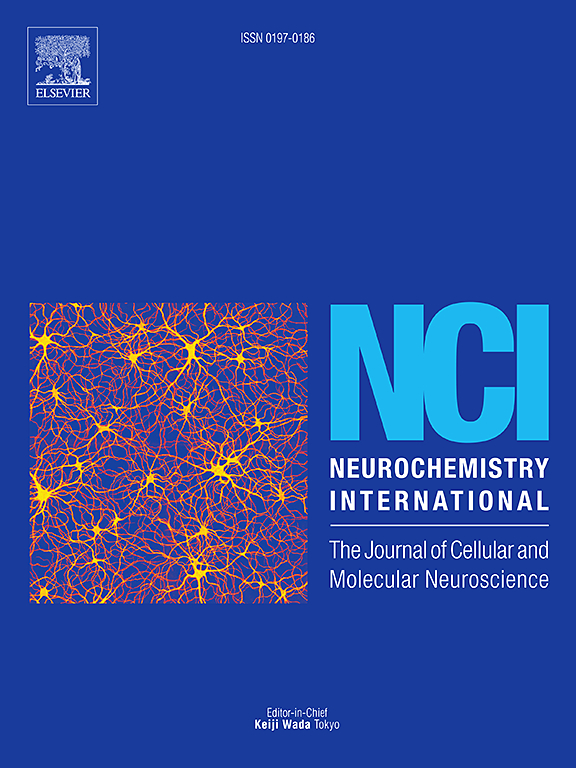神经元FSTL4负调控bdnf介导的神经元-胶质瘤相互作用。
IF 4
3区 医学
Q2 BIOCHEMISTRY & MOLECULAR BIOLOGY
引用次数: 0
摘要
胶质瘤利用多种分子途径促进其生存、增殖和侵袭。近年来的研究揭示了复杂的神经-胶质瘤相互作用,而BDNF在这种相互作用中起着重要作用。然而,神经元和胶质瘤之间的bdnf介导的串扰是否以及如何被调节尚不清楚。据报道,FSTL4负调控BDNF成熟。在这里,我们假设神经元FSTL4可能负调控bdnf介导的神经元-胶质瘤串扰。通过化学发生激活原代神经元和CRISPR敲除/激活内源性FSTL4等方法,我们发现激活的原代神经元支持共培养胶质瘤细胞的增殖,神经元BDNF分泌通过激活胶质瘤细胞中的TrkB介导这种神经元与胶质瘤的相互作用。此外,这一过程受到神经元FSTL4的负调控,因为其在原代神经元中的CRISPR KO进一步支持共培养胶质瘤细胞的增殖。重要的是,CRISPR激活原代神经元中内源性FSTL4表达会导致支持共培养胶质瘤细胞的能力受损,这突出了激活内源性FSTL4治疗胶质瘤的治疗潜力。综上所述,我们的研究表明FSTL4/BDNF/TrkB轴在微调神经元-胶质瘤相互作用中起着至关重要的作用,用CRISPR工具靶向这种相互作用可能有助于开发新的治疗策略。本文章由计算机程序翻译,如有差异,请以英文原文为准。
Neuronal FSTL4 negatively regulates BDNF-mediated neuron-glioma interaction
Gliomas exploit various molecular pathways to promote their survival, proliferation, and invasion. Recent studies reveal the complex neuron-glioma interaction and BDNF plays a major role in this interaction. However, it's unclear whether and how the BDNF-mediated cross-talk between neurons and gliomas is regulated. FSTL4 is reported to negatively regulate BDNF maturation. Here, we hypothesized that neuronal FSTL4 may negatively regulate BDNF-mediated neuron-glioma cross-talk. By using a combination of approaches like chemogenetic activation of primary neurons and CRISPR knockout/activation of endogenous FSTL4, we show that activated primary neurons support the proliferation of co-cultured glioma cells and neuronal BDNF secretion mediates this neuron-glioma interaction via activating TrkB in glioma cells. In addition, this process is negatively regulated by neuronal FSTL4 as its CRISPR KO in primary neurons further supports the proliferation of co-cultured glioma cells. Importantly, CRISPR activation of endogenous FSTL4 expression in primary neurons results in impaired ability to support co-cultured glioma cells, highlighting the therapeutic potential of activating endogenous FSTL4 for glioma treatment. Taken together, our study shows that the FSTL4/BDNF/TrkB axis plays an essential role in fine-tuning the neuron-glioma interaction and targeting this interplay with CRISPR tools may help to develop novel therapeutic strategies.
求助全文
通过发布文献求助,成功后即可免费获取论文全文。
去求助
来源期刊

Neurochemistry international
医学-神经科学
CiteScore
8.40
自引率
2.40%
发文量
128
审稿时长
37 days
期刊介绍:
Neurochemistry International is devoted to the rapid publication of outstanding original articles and timely reviews in neurochemistry. Manuscripts on a broad range of topics will be considered, including molecular and cellular neurochemistry, neuropharmacology and genetic aspects of CNS function, neuroimmunology, metabolism as well as the neurochemistry of neurological and psychiatric disorders of the CNS.
 求助内容:
求助内容: 应助结果提醒方式:
应助结果提醒方式:


